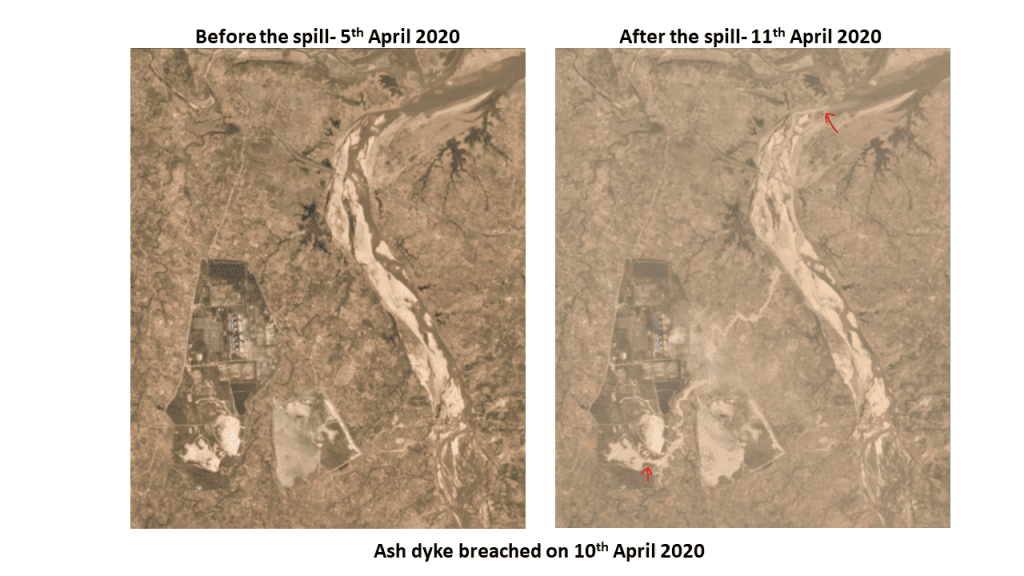A fly ash dyke collapsed at Reliance’s Ultra Mega Power Project in Singrauli, India, wreaking havoc as the toxic sludge spilled and destroyed farms. The flood swept up six people, including three children, a woman, and two men. Five corpses have been recovered so far.
Environment expert Ashwani Kumar Dubey accused officials of the Sasan Ultra Mega Power Project of negligence.
“Due to the negligent act of officials of Sasan Ultra Mega Power Project, the fly ash dyke breached and toxic residue and fly ash-laden water entered the houses of villagers and damaged their crops and also entered the Rihand reservoir.”
This is the third incident of fly ash flooding in Singrauli in the last eight months. In August 2019, a breach at the fly ash dyke at the Essar Plant in Mahan area caused damage to houses and loss of crops. Two months later, another breach at Indian government-owned National Thermal Power Corporation’s Shahpur coal plant washed away crops and cattle in neighbouring villages.
“The ash dyke breach should not be considered as a one-off accident or a minor incident of non-compliance. Singrauli, like many other areas in the country, is a critically polluted area, with acute land, air, and water contamination. Several regulatory agencies and court-based monitoring mechanisms are in place to ensure exiting illegalities are acted upon and impacts redressed. This breach has taken place, despite the mechanisms,” said Kanchi Kohli, legal researcher, Centre for Policy Research.

Satellite Image credit: Planet Labs and CREA. Click here for high-resolution time-lapse images on Planet Labs
Pollution Control Board orders Reliance Power to Pay Compensation
The regional pollution control board has asked the power company, Reliance’s Sasan Power Limited to pay Rs. 10 crore as compensation immediately and have held it responsible for the flooding from its coal plant.
Fly ash – a powdery byproduct of burning pulverised coal in power stations – is a perennial problem for Singrauli residents. This most recent toxic sludge leakage is unacceptable. Fly ash contains harmful heavy metals that can cause direct harm to the health of the people and the environment. It’s long overdue for both the Indian government and companies like Reliance Sasan Power to shift to safe and renewable sources of energy to power communities like Singrauli.